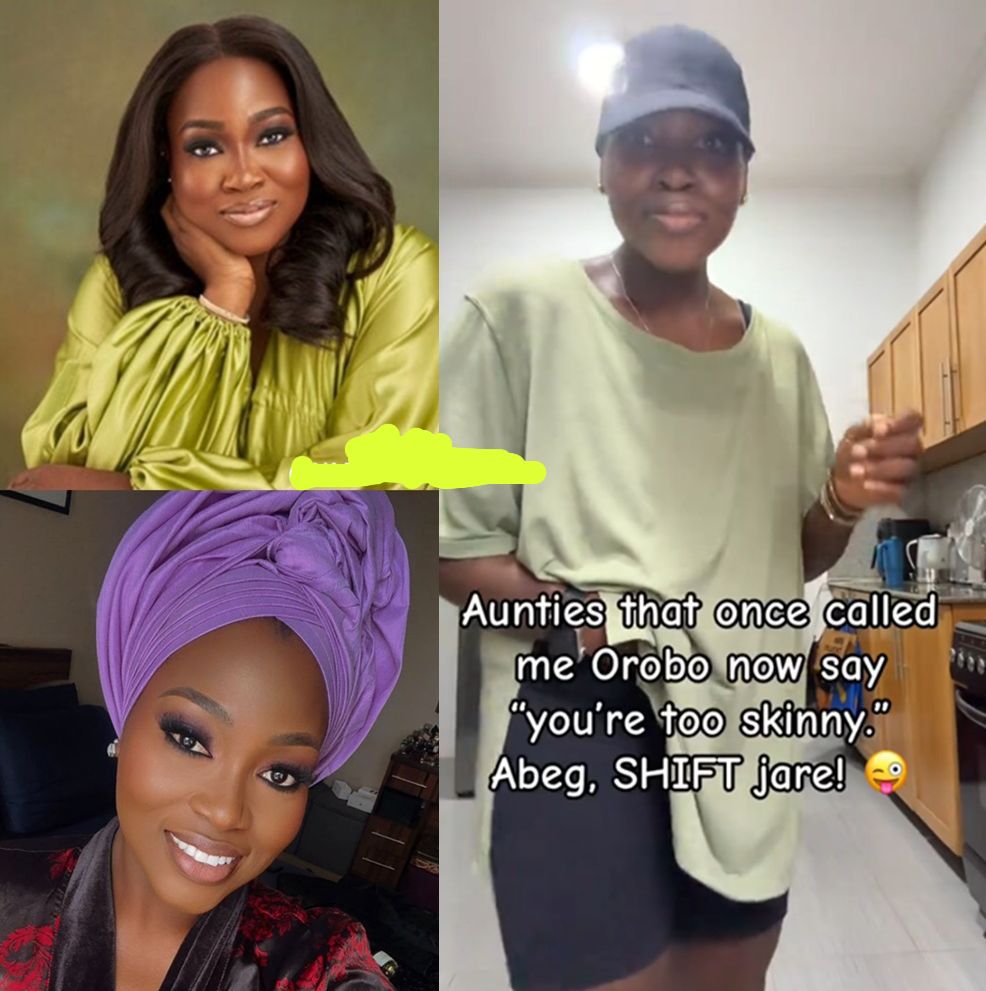
“If Men Keep Toasting You, Sit Down And Ask What You’re Doing Wrong” — Grace Ofure Sparks Heated Debate With Podcast Comment

Nigerian businesswoman and life coach, Grace Ofure, has once again stirred the digital beehive after a clip from her recent podcast appearance went viral, showing her advising women to “sit down at home and ask what they are doing wrong” if they constantly attract men’s advances.
The comment, now trending across X (formerly Twitter) and TikTok, has ignited widespread debates on morality, modern femininity, and the blurred line between confidence and overexposure in today’s social age.
In the now-viral clip, Grace Ofure, known for her motivational tone and unfiltered opinions, sits across from her host in a calm but piercing voice, saying, “Women, if you’re going out every day and they are toasting you, sit down at home and ask yourself, what am I doing wrong?” The statement, brief yet potent, has since been dissected in thousands of quote reposts and stitches, with supporters praising her for calling out what they describe as “a culture of attention-seeking,” while critics accuse her of moral policing and internalized sexism.
Ofure also talked about lady’s that do claim that when they struggle with a man the man end up dumping them, so they go for the money and forget about the man's foundation.
According to Grace Ofure she said "the 95% stat that ladies that suffer with men don't stay with the man its a lie, why are they not telling us about their misbehavior in the relationship some are naturally rude and they lack respect, the man gets tired of this, since he has the money and move on with his life."
For context, Grace Ofure’s reputation as a tough-talking self-made millionaire precedes her. She is often vocal about discipline, modesty, and the importance of women maintaining dignity even in the face of modern temptations.
Her audience—mostly women between 25 and 40—see her as a mentor who blends traditional African values with modern self-development. But this time, the tone of her advice has split her following right down the middle.
Some defenders on X argue that Ofure’s comment was not an attack on women’s freedom, but rather a call for self-reflection, especially in an era where many equate social presence with validation. One user wrote, “Grace Ofure is saying the truth. If every man you meet wants to toast you, you may need to check your energy, your dressing, your aura—something is attracting that pattern.” Another echoed, “Women complain about attracting the wrong men but refuse to check what they project.”
However, the backlash has been just as fierce. Critics claim her comment implies that women are responsible for male attention, a mindset they argue feeds into victim-blaming culture. A female podcaster replied, “So a woman can’t simply exist outside her house without being blamed for men’s behavior? That’s 1960s logic, not 2025.” The comment now has over 20,000 likes, signaling a generational divide in how Nigerians view morality and female autonomy.
Sociologists have long noted this tension. In a 2024 University of Lagos study on gender perception in media discourse, researchers found that 68% of young Nigerian women felt “morally judged” by older women’s public commentary, particularly when it came from figures they once admired. The study concluded that “female mentorship in Africa often carries a moralistic undertone rooted in respectability politics rather than empathetic empowerment.” Grace Ofure’s viral quote fits squarely into that dynamic.
Still, Grace Ofure’s supporters insist that her critics are missing the point. They argue she is not condemning women for being attractive, but urging them to question environments and habits that continually put them in compromising situations. To her audience, it’s less about “blaming women” and more about encouraging discernment in a hyper-digital world obsessed with appearances.
The clip has also taken on a life of its own beyond the podcast. Influencers have begun remixing her quote into TikTok reels, some using it humorously, others in reflective tones. In one viral version, a skitmaker plays a woman who gets catcalled on every outing before returning home to stare in the mirror as Ofure’s voice plays in the background. The caption reads, “Grace Ofure got me thinking fr 🥲.”
But the controversy reveals something deeper about Nigerian society’s evolving standards for women. In a culture where modesty is often equated with morality, yet social media rewards visibility and boldness, women find themselves walking a thin line between expression and expectation. Grace Ofure’s statement, though couched as advice, reopened this delicate conversation — what does it mean to “do something wrong” as a woman in 2025? Is it wearing revealing outfits, clubbing often, or simply existing confidently in public spaces?
For many, the answer depends on perspective. Religious conservatives applaud Ofure for “speaking truth in a decaying moral era,” while feminists see her as reinforcing patriarchal narratives that blame women for male attention. Still, one cannot deny the cultural resonance of her words. Even critics admit her delivery—calm, self-assured, and maternal—makes her voice difficult to ignore.
As the clip continues to circulate, Grace Ofure herself has not issued a clarification. Perhaps she doesn’t need to. For a woman whose brand thrives on sparking introspection, the storm might have been the goal all along. Whether one agrees or not, the conversation she reignited — about dignity, perception, and responsibility — has again reminded Nigerians that morality, like beauty, remains a matter of perspective in a society forever caught between tradition and modernity.
Watch the video below
“Women, if you’re going out everyday and they are toasting you, sit down at home and say 'what am I doing wrong?'..." - Grace Ofurepic.twitter.com/pec2JhvmYZ
— YabaLeftOnline (@yabaleftonline) October 13, 2025


